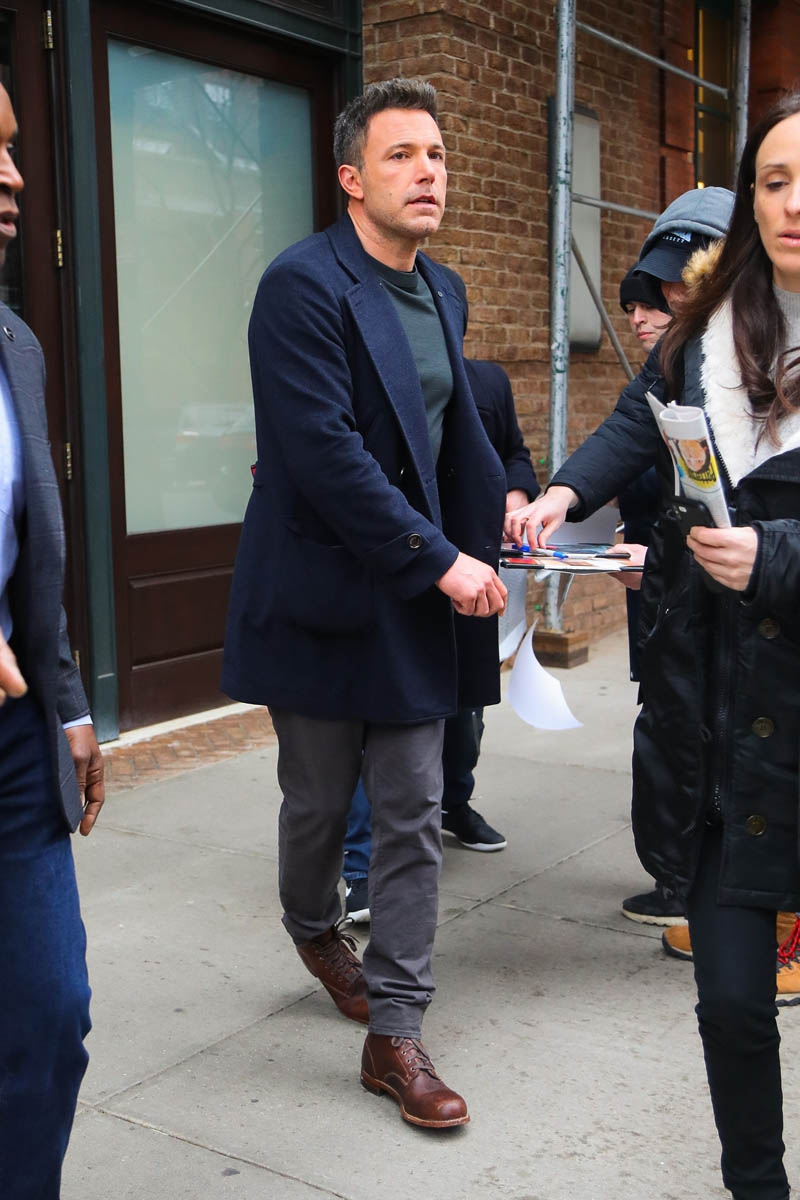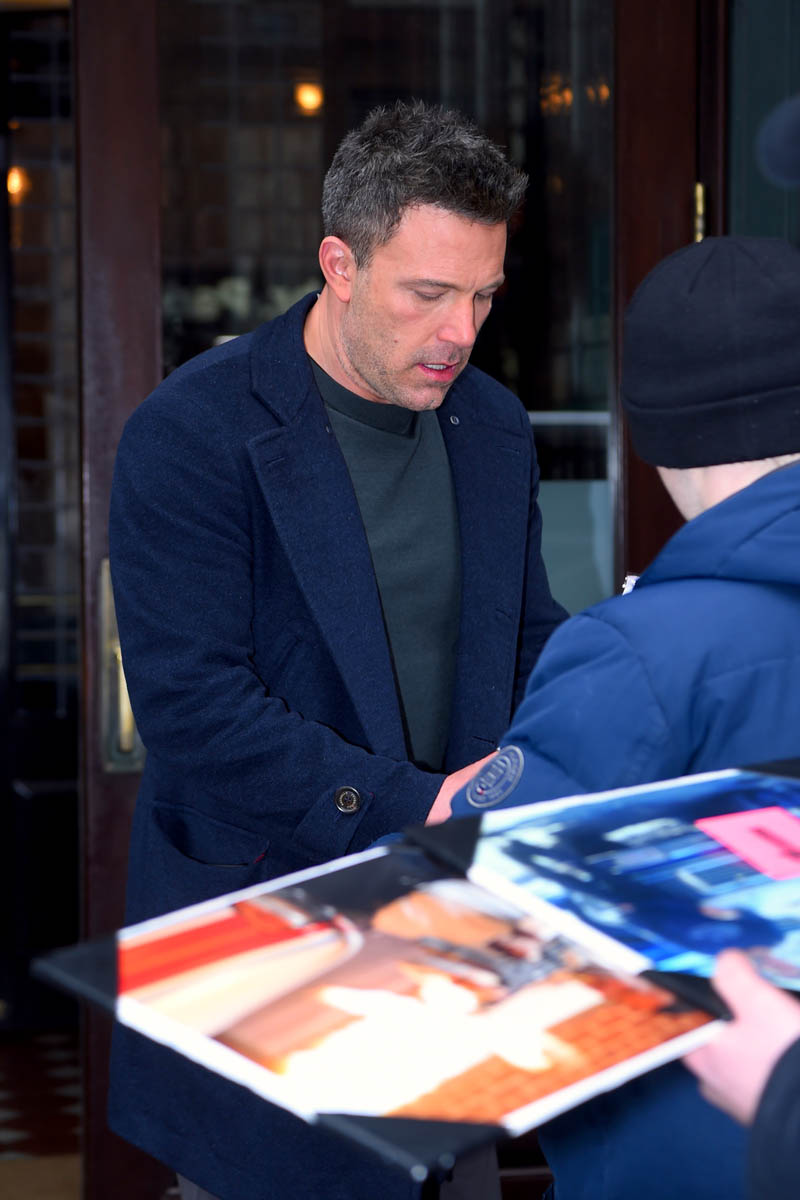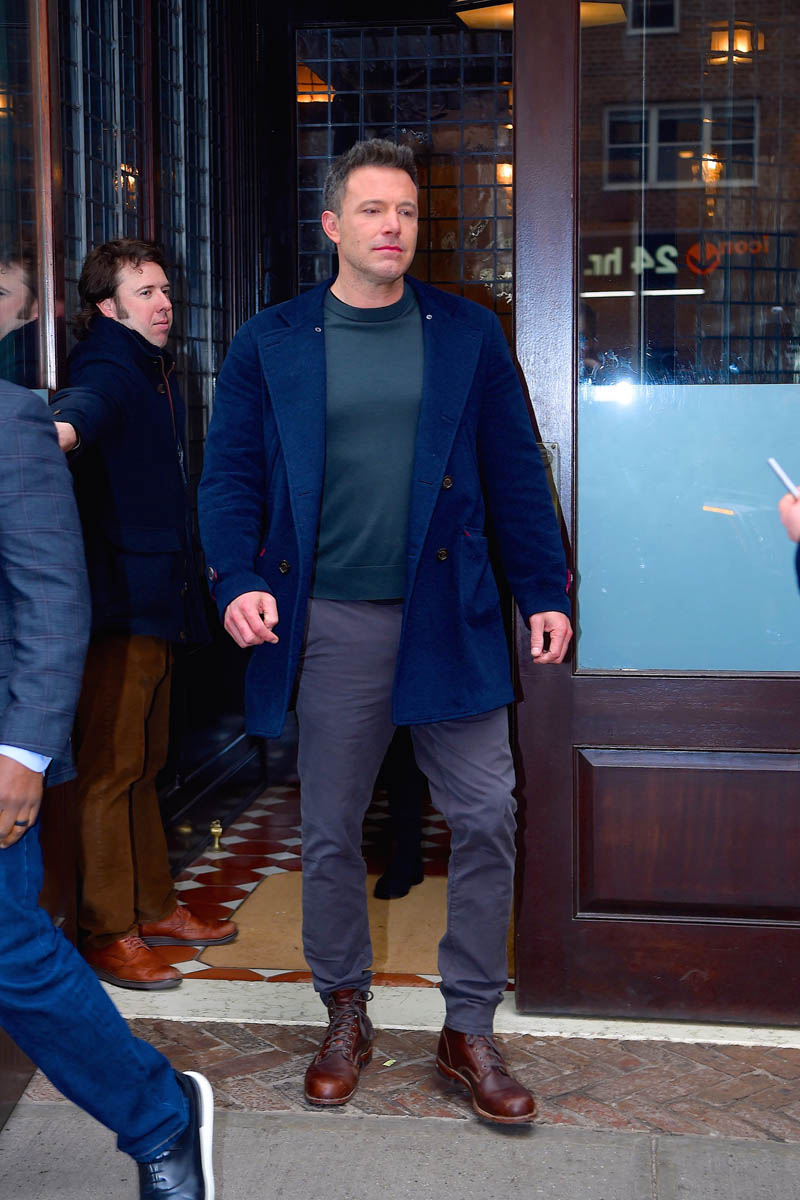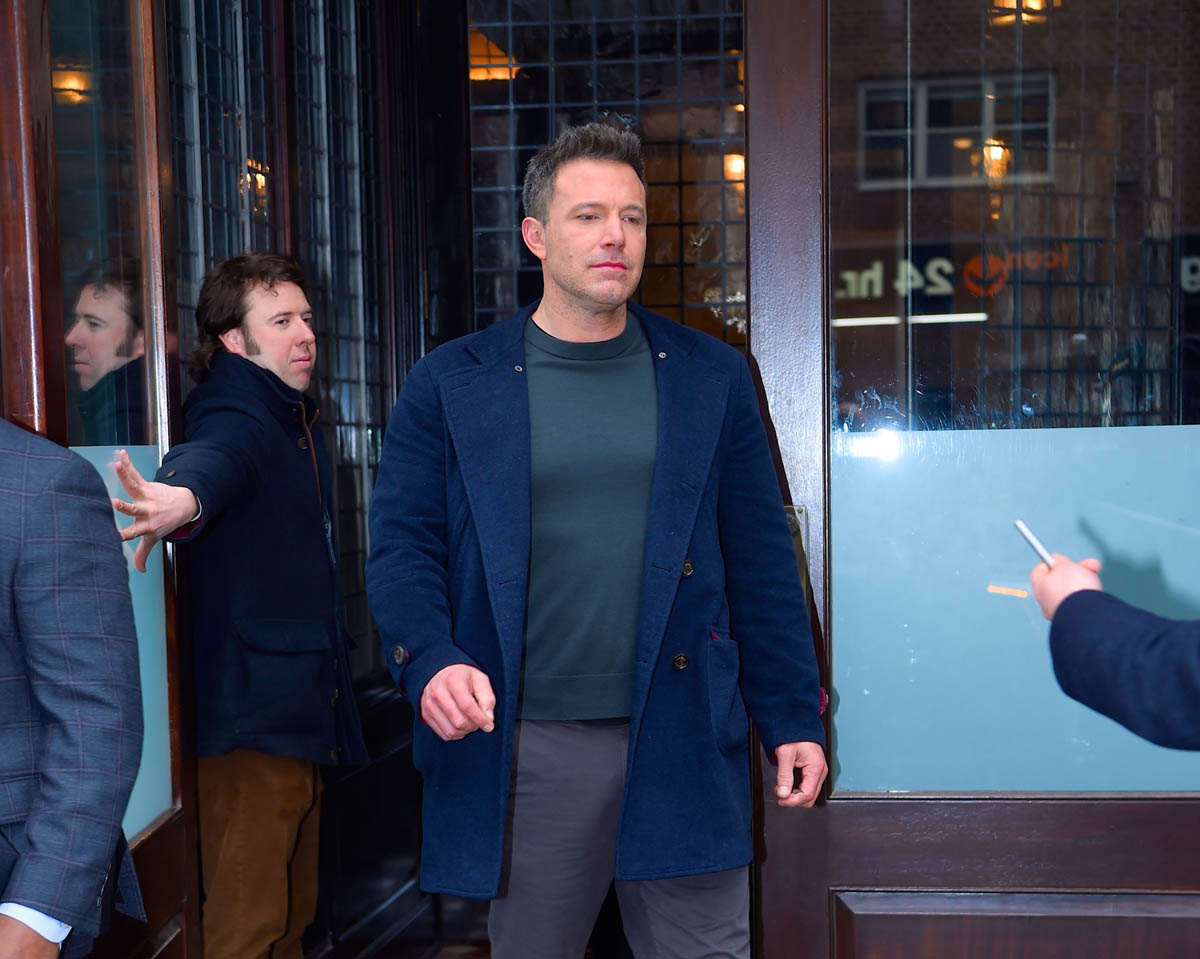Ben Affleck comes back with a comeback movie


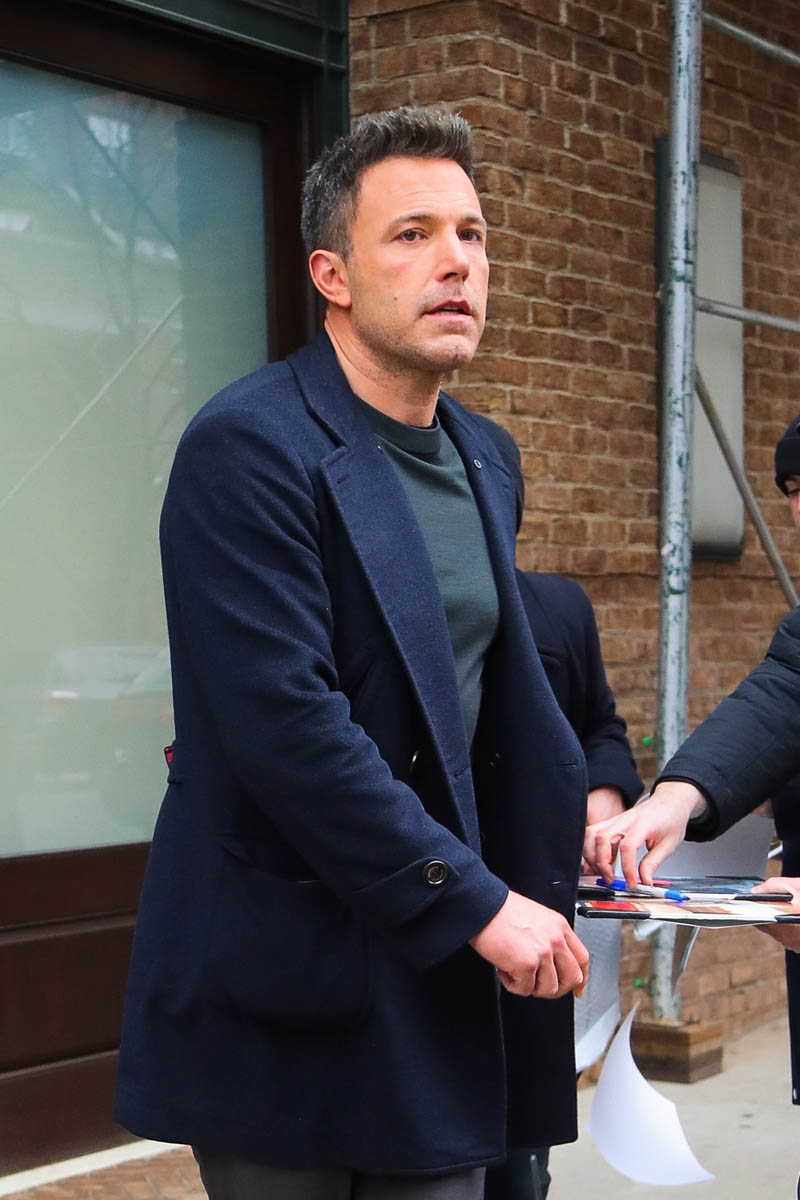
Ben Affleck’s new film, The Way Back, comes out in a month. He plays a former high school basketball player who’s lost everything to addiction and is finding his “way back” by coaching the team from his alma mater. Obviously he knows something about his character, Jack Cunningham. And, as he tells The New York Times in what’s probably the most candid interview of his career, this was deliberate. He wanted to work through some of his own personal issues through his creative process – a risk, for sure. But in his words, “I’ve never been very risk-averse”.
When you’re promoting a film in which you’re playing an alcoholic and you happen to be an alcoholic, and you’re as famous as Ben Affleck, there’s no getting around talking about it. He talks about it extensively. He talks about addiction in his family. He talks about drinking more and more as his marriage deteriorated – and the fact that his drinking made his marriage even worse. He talks about the guilt he still feels over his marriage falling apart:
“The biggest regret of my life is this divorce,” he continued, noticeably using the present tense. “Shame is really toxic. There is no positive byproduct of shame. It’s just stewing in a toxic, hideous feeling of low self-worth and self-loathing.”
He even talks about why he lied about his phoenix rising back tattoo. And he talks about why he stepped away from Batman, how that role was destroying him. All of this pain has been channeled into his performance in The Way Back, formerly titled “The Has-Been”, which you might say is a form of self-punishment, no doubt something Ben is also too familiar with. And is recovering from. As director Gavin O’Connor
“I think that Ben, in an artistic way, in a deeply human way, wanted to confront his own issues through this character and heal.”
This NYT piece includes a description of a scene in the film in which Ben’s character apologises to his ex-wife.
“I failed you,” he says. “I failed our marriage.”
As noted in the article, it’ll be hard to separate the film’s story from Ben’s real story in moments like this. He seems to be aware of it. And he seems to be confronting it. That would have been part of the decision-making in agreeing to an interview like this, at the beginning of the promotional cycle for this film. And as complicated as that is, the more we talk about it, the more we appreciate how pervasive this disease is, how it doesn’t discriminate, how we, though many of us, me included, have not been sensitive or informed or compassionate to those who suffer from it, we might move forward in our understanding of it. Ben Affleck has been doing the work. And now he’s showing it. From the most recent trailer, released a couple of weeks ago, this could be the most affecting performance of his career.
Click here to read the full NYT article on Ben Affleck.

